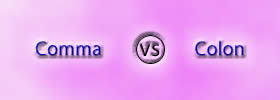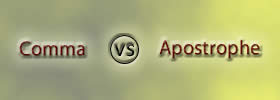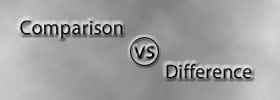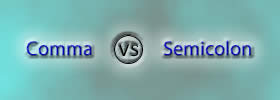Words & Wordplay
Comma vs Full-Stop
|
The basic difference between a comma and a full-stop is that a comma does not end a statement, whereas, a full-stop is used to end the statement. |
Comma vs Colon
|
The punctuations comma and colon are commonly used in grammar. Comma is used to join the components, while colon is used to represent a list of existing components. |
Comma vs Apostrophe
|
The appearance of both, the comma and the apostrophe are the same but they differ in function and position. A comma provides a link, whereas, an apostrophe explains the ownership or direct relationship between... |
Comparison vs Difference
|
Comparison and Difference are commonly used in relevance to two or more objects. However, when comparing something, two or more things are compared against each other. This means that one tries to find... |
Comma vs Semicolon
|
The most frequently used punctuation's are the comma and the semicolon; both sound similar, but are used for different contexts. Comma is used for joining the components, whereas semicolon is used to... |













